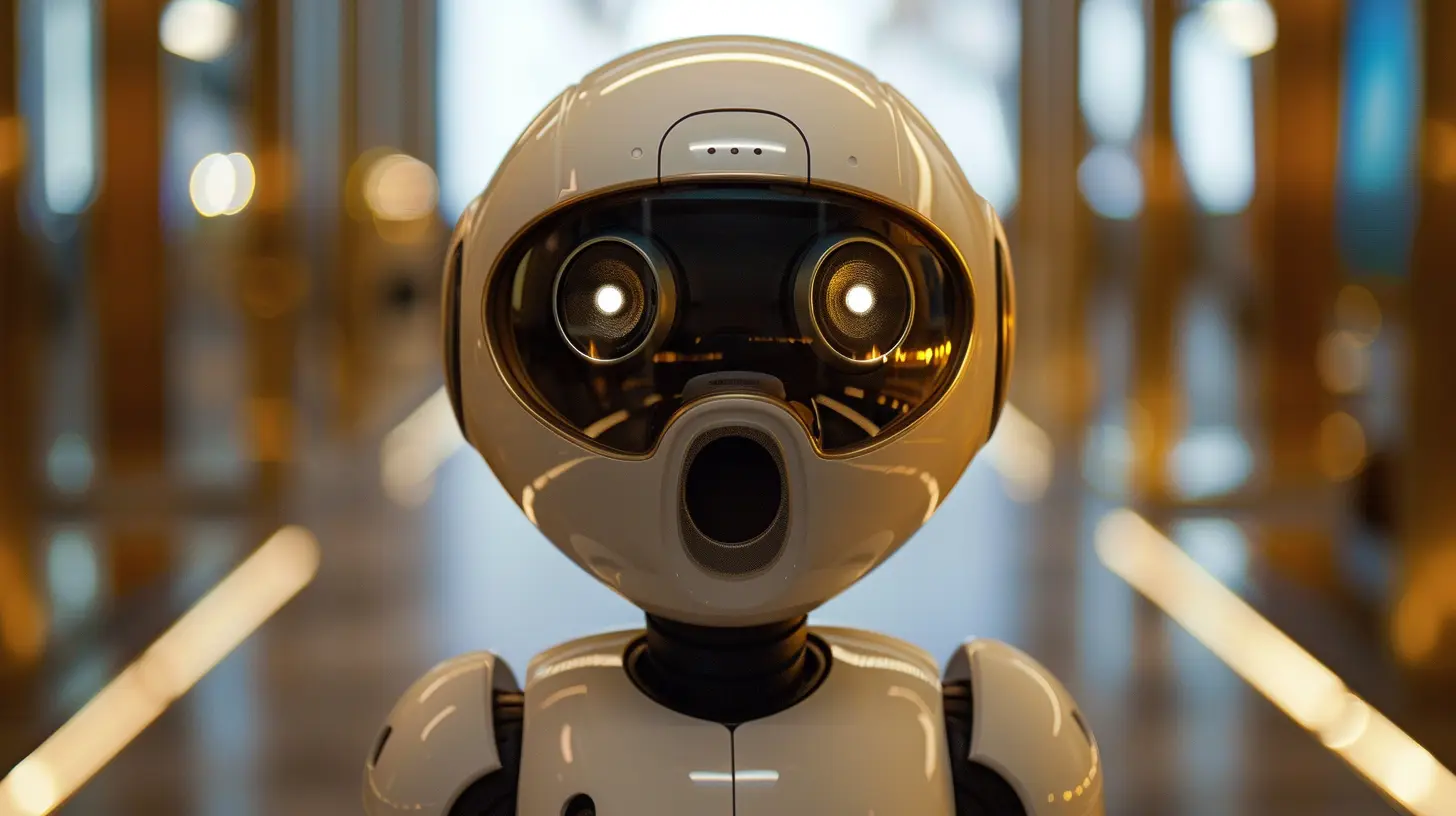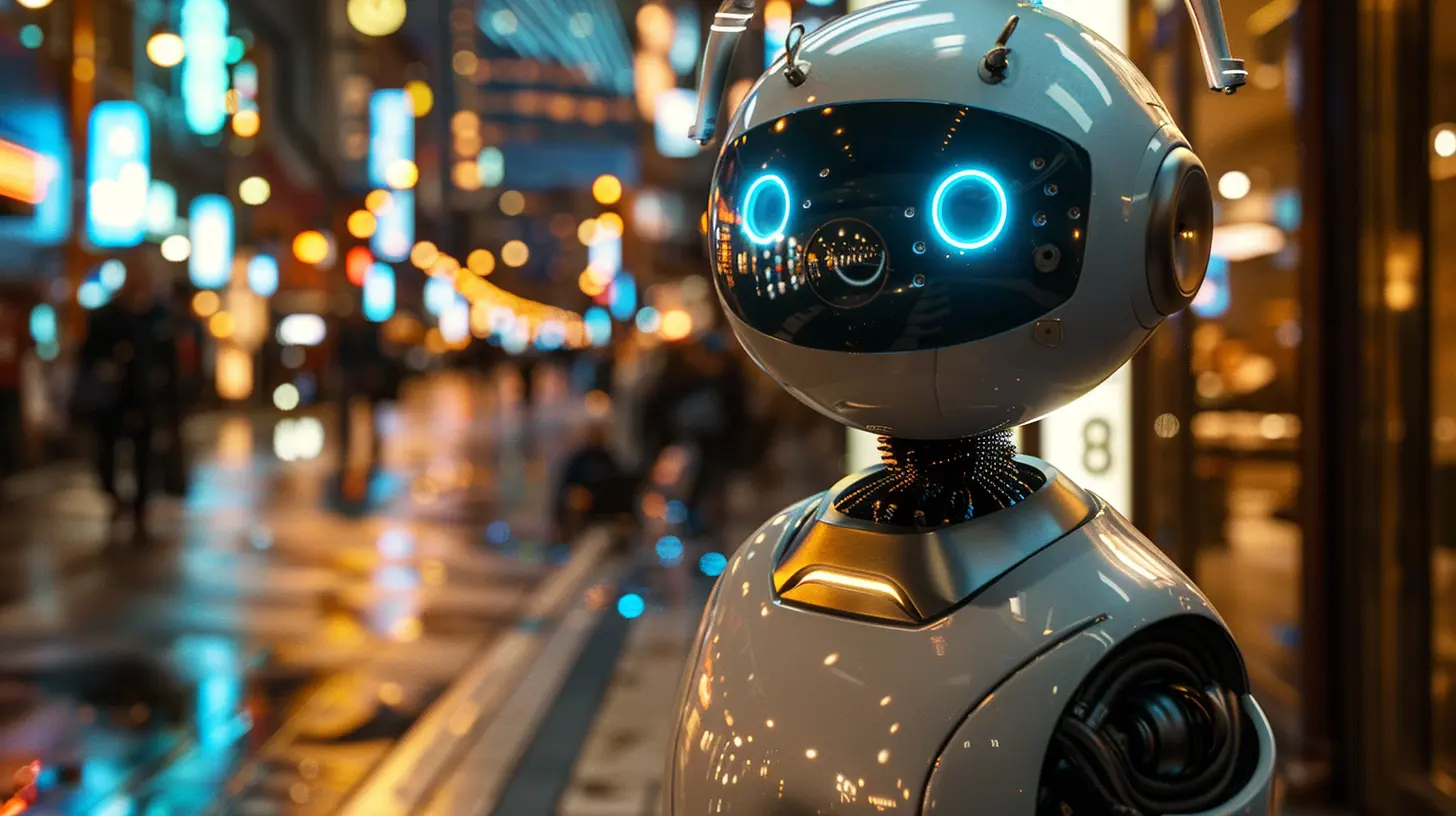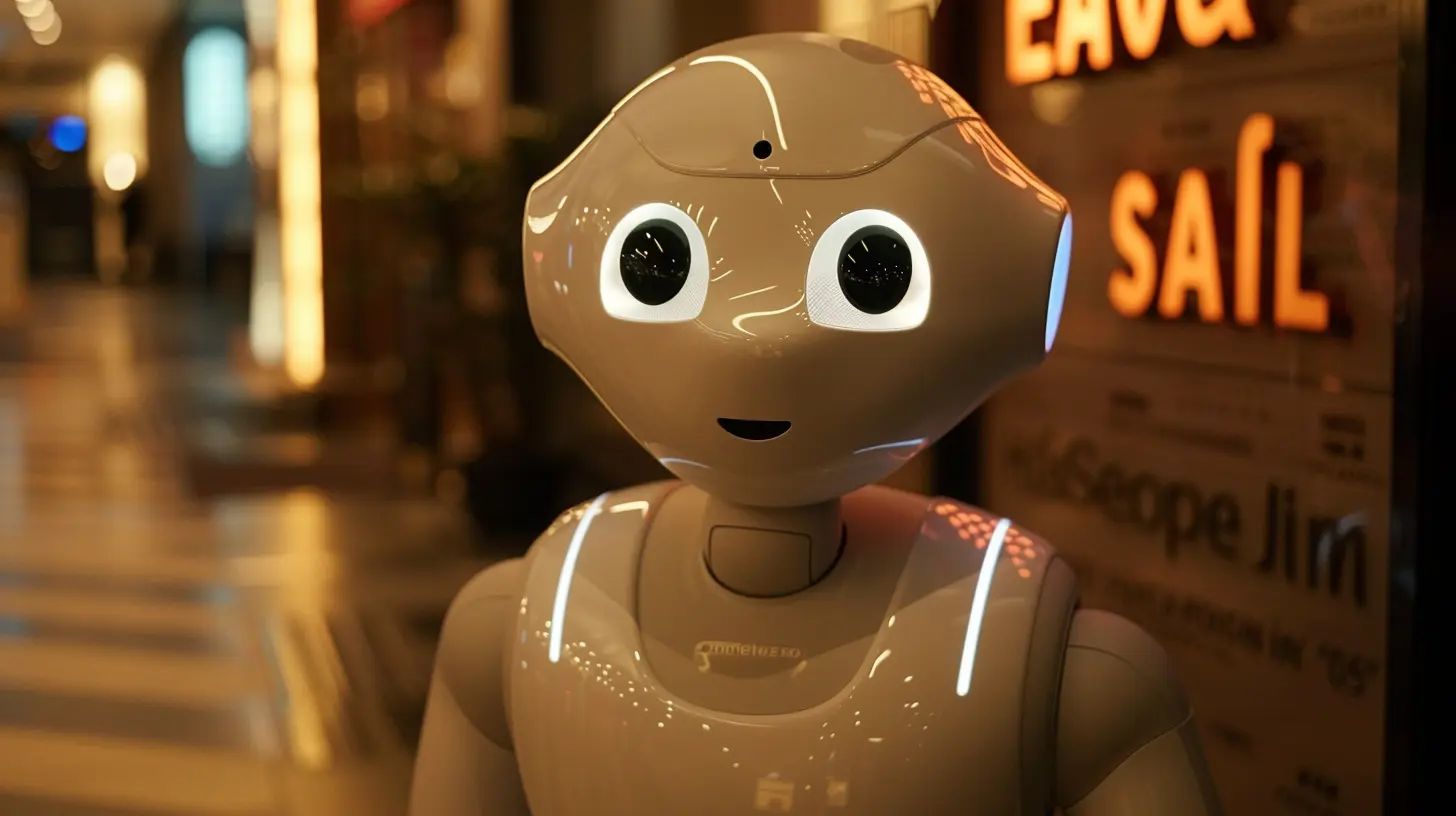The Ethics of Emotion AI: Should Machines Understand Our Feelings?
7 July 2025
Emotion AI. It sounds like something straight out of a sci-fi movie, doesn’t it? But in reality, it's been creeping into our everyday lives for a while now. Whether you're aware of it or not, machines are getting pretty good at detecting and interpreting human emotions. From the chatbots you interact with to smart home assistants, there's a wave of tech that aims to understand how we feel, and it's not slowing down anytime soon.
But here's the big question: Should machines really understand our feelings? As cool as it might sound, there are some heavy ethical questions we need to consider. This is where things get a little blurry. On the one hand, emotion AI holds the promise of more personalized experiences. But on the other, it raises concerns about privacy, manipulation, and the potential for machines to exploit human emotions.
So, let’s dive into the ethics surrounding Emotion AI and explore whether or not machines should be given the power to understand our feelings.
What Exactly is Emotion AI?
Let’s start with the basics. Emotion AI, also known as affective computing, refers to systems or machines that can recognize, interpret, and sometimes even respond to human emotions. Think of it as giving computers a kind of emotional intelligence. These systems can analyze facial expressions, tone of voice, body language, and even physiological signals like heart rate to gauge what a person is feeling.Now, you might be thinking, “Great, so machines are becoming more human?” Well, not exactly. While machines may be able to recognize emotions, they don’t actually feel them. They’re just really good at reading the signs that we, as humans, unconsciously display when we're happy, sad, angry, or stressed.
For example, your smart speaker might notice that you're speaking in a more frustrated tone and offer to help in a calmer, more soothing voice. Or, in a more advanced application, a wearable device might track your stress levels and suggest you take a break before you hit burnout.
The Promises of Emotion AI
Emotion AI isn't all doom and gloom. In fact, there are some pretty exciting and even life-changing applications. Let’s talk about a few ways it could improve our lives.1. Enhanced Customer Service
Imagine calling customer support and never getting stuck with a robotic voice that just doesn’t get your frustration. With Emotion AI, companies could train their virtual assistants to recognize when you're feeling agitated and respond in a way that calms you down. This could lead to faster resolutions and a better overall experience.2. Mental Health Support
One of the most promising uses of Emotion AI is in the field of mental health. Machines could potentially detect signs of depression, anxiety, or stress earlier than humans. For instance, AI-driven apps could monitor changes in a user’s voice or text patterns to identify when they might need emotional support. This could be a game-changer for people struggling with mental health issues who may not feel comfortable reaching out for help.3. Personalized Learning
In education, Emotion AI could be used to create more personalized learning experiences. Teachers could use AI to gauge how students are feeling during lessons. Are they bored? Confused? Enthusiastic? The AI could pick up on these emotions and help the teacher adjust the lesson accordingly. This could lead to more engaged students and better learning outcomes.
The Ethical Dilemmas of Emotion AI
While all of these applications sound great, we can’t ignore the ethical minefield that comes with Emotion AI. Let’s break down some of the key concerns.1. Privacy Concerns
The biggest issue with Emotion AI is the question of privacy. For machines to understand our emotions, they need access to a lot of personal data. We're talking facial expressions, voice recordings, even your heart rate. That’s a lot of sensitive information, and there's always the risk that this data could be misused, hacked, or sold to third parties.Think about it: If a machine can analyze your emotions, it can potentially be used to manipulate you. For example, advertisers could tailor their messages to exploit your emotional state, pushing you to buy things you don’t really need when you’re feeling vulnerable.
2. The Risk of Manipulation
Emotion AI could open the door to new forms of manipulation. Imagine a political party using AI to analyze your emotions and craft messages that play on your fears, hopes, or anxieties. Or a company that uses AI to subtly influence your buying decisions by detecting when you're more likely to make impulsive purchases.It’s not hard to see how this technology could be used to nudge people in directions they might not otherwise go. The ethical question here is: Should we allow machines to have this kind of power over our emotions?
3. Bias and Discrimination
Emotion AI systems are only as good as the data they’re trained on. And here’s the thing: AI is often trained on biased data. If the data used to train these systems is skewed, the AI might misinterpret emotions, especially for people from different cultures or backgrounds.For example, a facial recognition system trained primarily on Western faces might struggle to accurately detect emotions in people from other parts of the world. This could lead to unfair treatment or misjudgments, particularly in high-stakes areas like law enforcement or hiring.
Should Machines Really Understand Our Feelings?
So, should machines be given the ability to understand our emotions? It's a tough question, and there’s no easy answer. Here are a few things to consider as we move forward with this technology.1. Consent is Key
If we do allow machines to understand our emotions, consent should be at the forefront. Users should have control over how their emotional data is collected, used, and stored. This means making sure that companies are transparent about how they use Emotion AI and giving users the option to opt-out.2. Regulation is a Must
As with any powerful technology, Emotion AI needs to be regulated. There should be clear guidelines on how emotional data can be used, who can access it, and what safeguards are in place to protect it from misuse. We’ve seen how unregulated data collection can lead to massive privacy breaches, and we don’t want that to happen with our emotions.3. Striking a Balance
Emotion AI has the potential to do a lot of good, but only if it’s used in a way that respects our privacy and autonomy. The key is to strike a balance between the benefits it offers and the risks it poses. At the end of the day, technology should work for us, not against us.The Future of Emotion AI: Where Do We Go From Here?
The future of Emotion AI is both exciting and uncertain. On one hand, we could see machines that are incredibly good at reading our emotions, helping us lead better lives, and even improving mental health care. On the other hand, there’s a real risk that this technology could be used to manipulate, control, or exploit us.As we continue to develop Emotion AI, we need to have open conversations about the ethical implications. We need to ask ourselves: What kind of relationship do we want with machines? Do we want them to understand our emotions, or is that a line we shouldn’t cross?
The truth is, there’s no turning back now. Emotion AI is here, and it’s only going to get more advanced. The real question is: How do we make sure it serves us rather than controls us?
Conclusion
Emotion AI is a fascinating and complex technology. While it holds the promise of more personalized and empathetic interactions, it also opens up a Pandora's box of ethical issues. Should machines understand our feelings? Maybe. But only if we approach it with the right mindset, prioritizing privacy, consent, and regulation.As with any new technology, the responsibility falls on us to shape its future. If done correctly, we could see a world where machines not only serve us better but also enhance our emotional well-being. If done poorly, we risk living in a world where our emotions are just another data point to be exploited.
So, what do you think? Should we let machines into our emotional world, or should we keep that part of ourselves just for humans?
all images in this post were generated using AI tools
Category:
Ai EthicsAuthor:

Ugo Coleman
Discussion
rate this article
2 comments
Niko Bowman
Imagine a world where your toaster knows you're having a bad day and offers a slice of warm, buttery bread as comfort! But as heartwarming as it sounds, let’s not give our appliances emotional intelligence—who wants to argue with a sassy fridge about leftovers?
October 17, 2025 at 11:33 AM

Ugo Coleman
While the idea of emotionally intelligent appliances is charming, it raises ethical concerns about autonomy and dependency. We should prioritize human interactions over machines in emotional contexts.
Joanna Pruitt
Great article! Navigating emotion AI's ethics feels crucial as technology evolves. Let's discuss further!
July 13, 2025 at 12:35 PM

Ugo Coleman
Thank you for your feedback! I agree—discussing the ethics of emotion AI is essential as the technology progresses. I'm looking forward to your thoughts!


